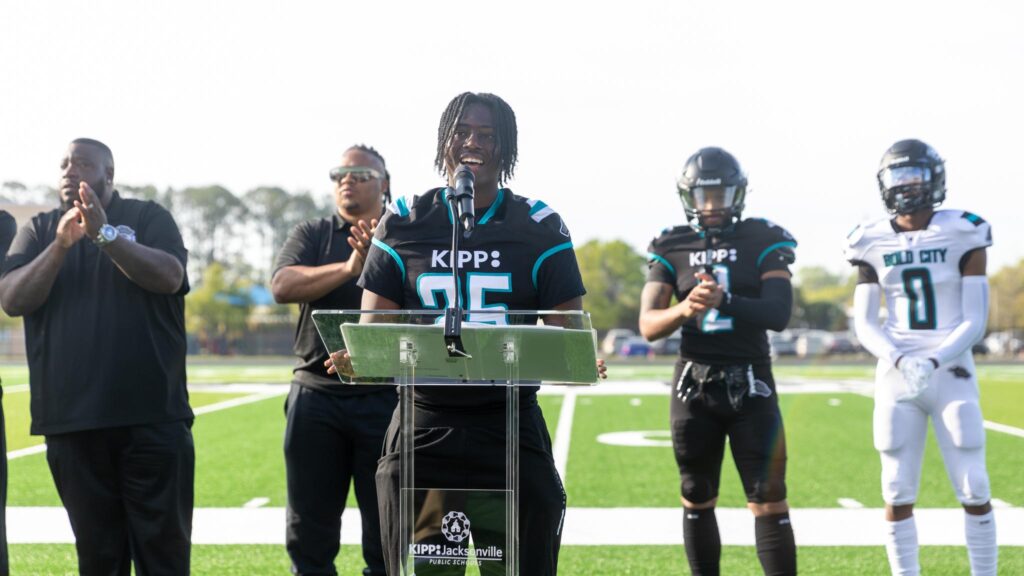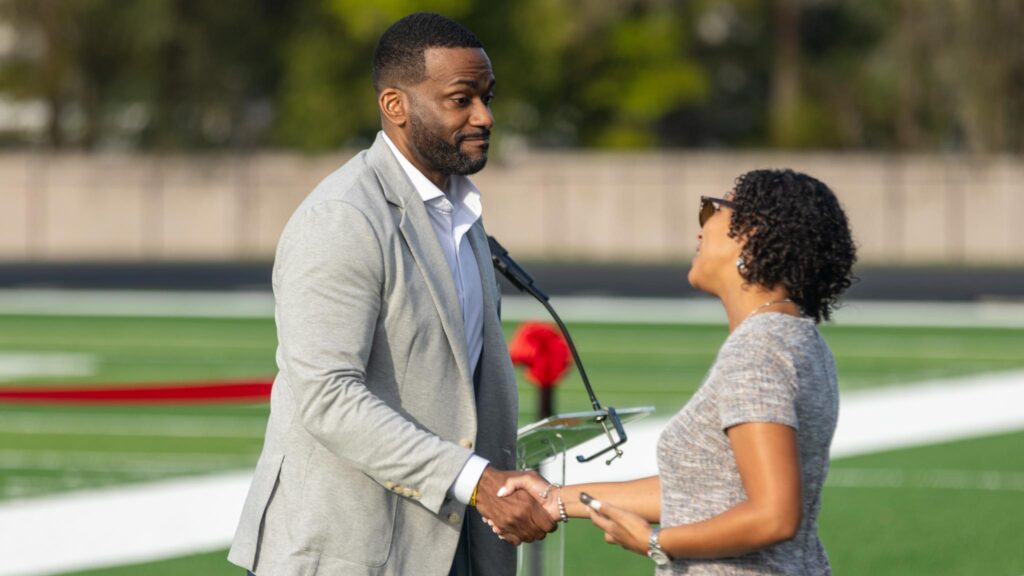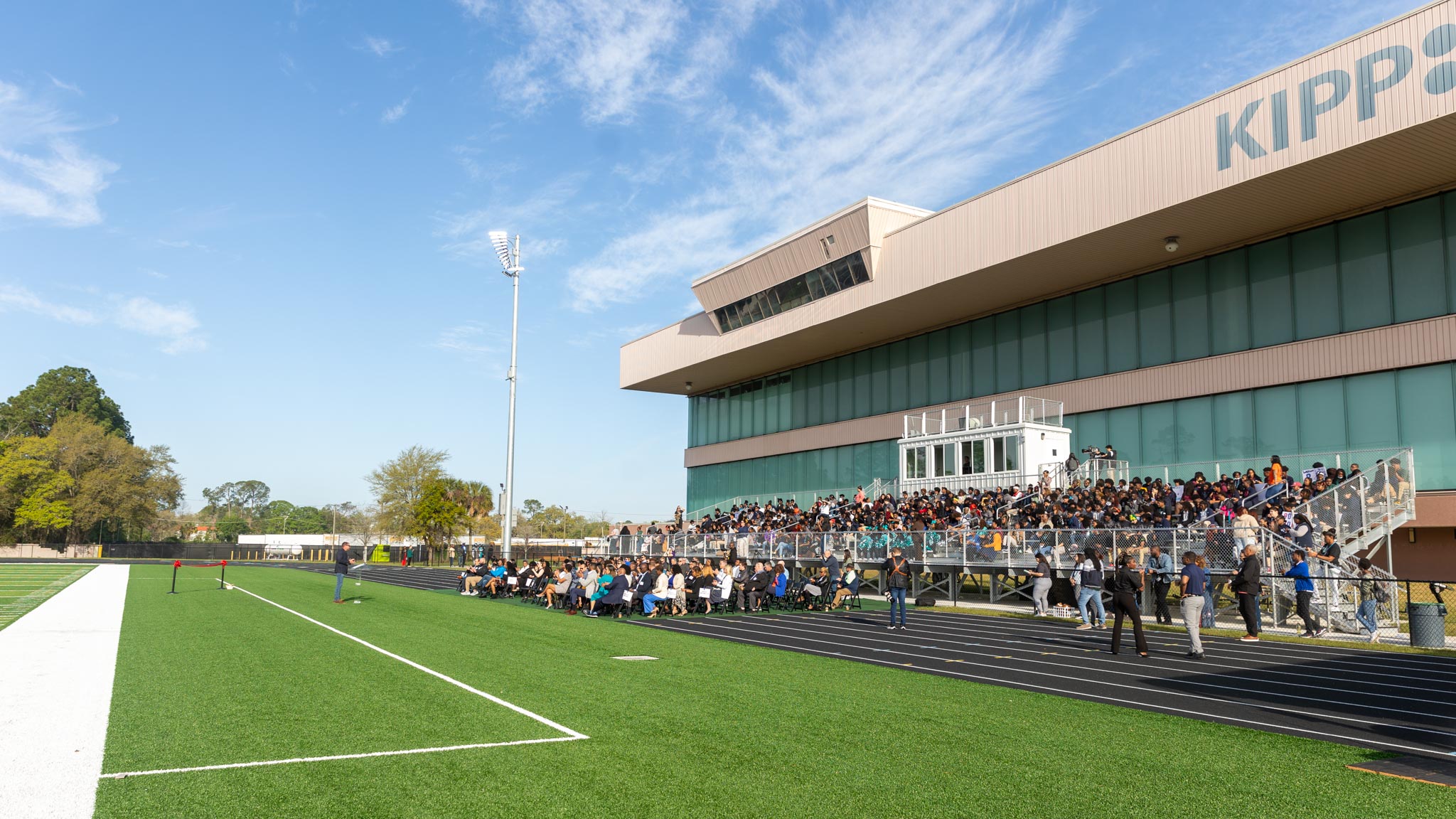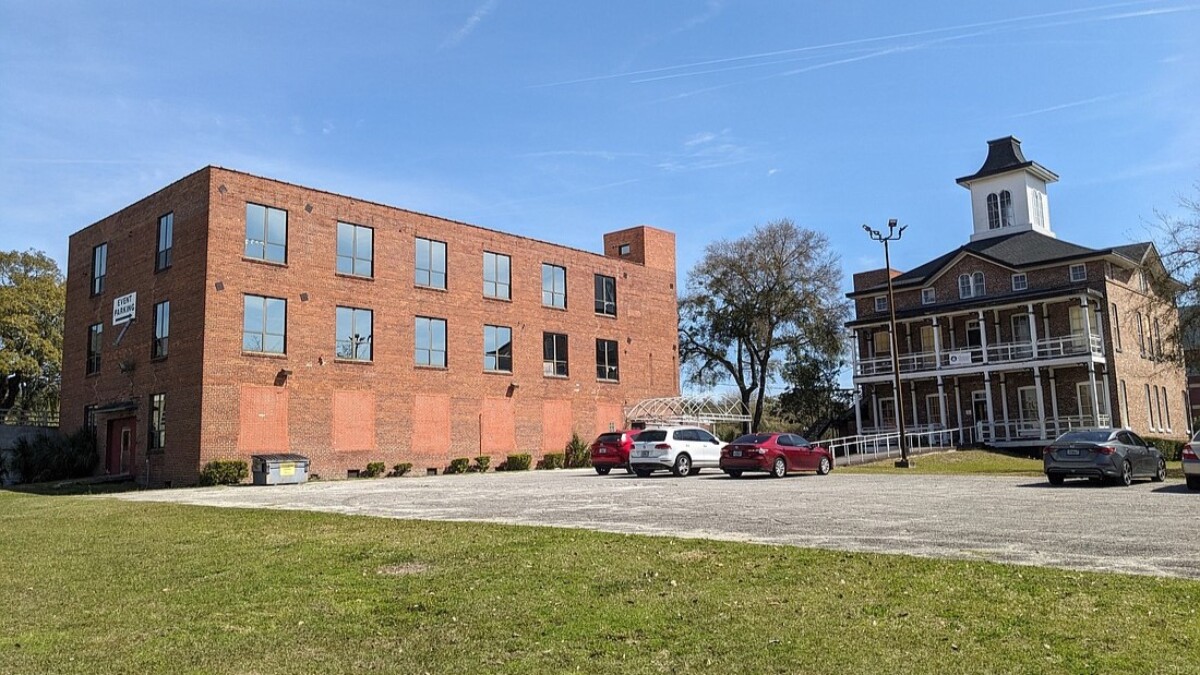Nevon Christian says the legacy that he and his football teammates leave behind this fall would not have been possible without community investment.
Nevon is a junior at KIPP Bold City High School who watched a ribbon-cutting at his school’s football field on the Westside on Wednesday morning.
“It’s a blessing and an opportunity because it helps me and my teammates create a legacy to leave behind,” said Christian, who has been a KIPP Jacksonville student since kindergarten. “The people that come here, they could try and surpass us.”
The Jaguars Foundation, Dick’s Sporting Goods Foundation, Carlton Construction and LISC Jacksonville combined to convert the infield of the charter school into a football field and track that might become a community beacon.
Nevon, a 17-year-old with a 3.7 grade point average, says athletics keep him motivated and driven.
“When I’m here, and I’m doing sports and I’m with my teammates, I feel the bond, (try) to work together and do the best I can,” Nevon said.

Earlier this year, the American Association of Pediatrics released a paper that noted the professionalization of youth sports is what leads many children to leave sports by the time they are 13 years old. The field is sandwiched between KIPP Jacksonville’s Bold City High School and Bessie Coleman Academy that educates students between kindergarten and eighth grade.
Melissa Fullmore, KIPP Jacksonville’s incoming executive director, said the effort to build a football field, athletic track and renovated gymnasium is part of the school’s ethos to focus on the whole child.
Fullmore said the investment from community leaders in professional sports, construction and the nonprofit realm personify what students can become once they graduate. Carlton Construction founder Matt Carlton, Jaguars Chief Community Impact Officer Whitney Meyer and LISC Jacksonville Executive Director Irvin “PeDro” Cohen all graduated from public high schools in the region.
“Our kids are brilliant,” Fullmore said. “Sometimes, the way we assess them, or the way the world is set up does not show that brilliance all the time. This means a lot because it gives them an opportunity to change the trajectory (of their lives). They can still come back and be the teachers, be the next executive director of Kipp Jacksonville, be the mayor, be a City Council member. We want them to believe that this is a great place and they should come back and invest in it as well.”
Last year, LISC Jacksonville applied for and won a $75,000 grant from the Dick’s Sporting Goods Foundation to help build the football field and athletic track.
The synthetic field surface is on the infield of what was the Jacksonville Kennel Club for more than 70 years.
The school acquired the property from the Jacksonville Kennel Club for $10 in June 2009 through its affiliated nonprofit, the Jacksonville Alliance for KIPP Schools, Inc. Over the last 15 years, the charter school has expanded to 2,800 students across four campuses. Its students primarily reside in Northwest Jacksonville and the Westside.
A dog track in the echo of a railroad track was not a location that fostered dreams for children on the Westside.

Shavar Jeffries has worked as an education choice advocate for more than 20 years. Jeffries, now the CEO of the KIPP Foundation, was among the few hundred students, faculty, parents and leaders who met on a sun-kissed morning off McDuff Avenue.
Nevon was one of those people. He will be a part of KIPP Jacksonville’s first high school graduating class next year. He represents the future that Jeffries and his peers have tried to cultivate in charter schools in 30 cities in the country.
“This was a space where people would bet and gamble because they had dreams and they felt they didn’t have the economic wherewithal within the jobs available to them, the opportunities available to them to fulfil that dream,” Jeffries said. “They would bet and have a hope that, maybe, they could win in a dog race and walk into their dreams.
“What we’ve now done is converted that space into a field of dreams where our kids that we serve can have a safe, inviting place where they can be cultivated, developed and pushed to their potential.”
Editor’s note: This story has been updated to reflect the price of the sale of the school property and to add the name of the affiliated nonprofit that owns the land.







